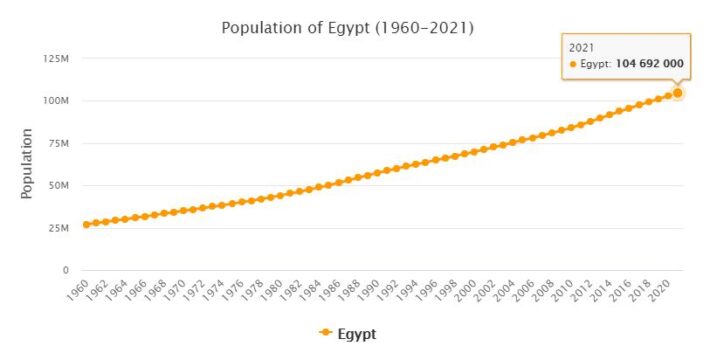Yearbook 2012
Egypt. The year was marked by a power struggle between the Muslims in the Muslim Brotherhood (MB), whose candidate Muhammad Mursi in June won the presidential election, and the military establishment based on the powerful Supreme Council of the Armed Forces (SCAF).
In the parliamentary elections that started before the New Year and ended on January 3-4, a total of approximately 70% of the voting was assembled by Islamist groups. In March, members were appointed by a Constituent Assembly to write a new constitution. Half of the members were nominated by, among others, trade unions, the others by Parliament, which critics believed gave the Islamists too much influence over the country’s future constitution.
- AbbreviationFinder.org: Provides most commonly used acronyms and abbreviations for Egypt. Also includes location map, major cities, and country overview.
The presidential election was marked by a tough campaign in which twelve of the 23 nominated candidates were rejected by the election commission. In the first round of elections May 23-24, Mursi took 24.3% of the vote and the military council candidate Ahmed Shafiq 23.3. They both met in a second round of elections on June 16-17, when Mursi won by a narrow margin – 51.7% against Shafiq’s 48.2. On the day before the second round of presidential elections began, the country’s constitutional court ruled that one-third of parliamentary seats had been filled on invalid grounds. They were legally reserved for independent candidates but had been appointed by politicians with party affiliation. The Military Council then dissolved the Parliament and issued a decree in which it took upon itself the legislative and executive powers, as well as the veto over the new constitution. Both liberals and Islamists believed that the decree was similar to a military coup. In August, when Mursi had held the presidential office for a month, he annulled the decree of the military council and transferred the power to himself. He also dismissed Field Marshal Mohamed Hussein Tantawi, Chairman of the Military Council, from the post of Commander-in-Chief and Minister of Defense and appointed former Water Minister Hisham Qandil, who was a religious Muslim but not a member of MB, to be the new Prime Minister. Qandil appointed a government where four ministers belonged to MB.
The demonstrations erupted again in November in protest against a decree in which Mursi gave himself power over much of the judiciary and against the new constitutional proposal that the Egyptians would have to decide in a referendum. Mursi withdrew the decree but the referendum was held in two rounds, December 16 and 22. Only 33% of Egyptians participated, but they gave a clear yes to the new constitution which the critics believed was an Islamic maritime work.
The Egyptians in common did not notice any major changes. Unemployment, bread shortages, garbage dumps and traffic jams were continued everyday problems. Doctors, teachers and transport workers strike. Freedom of the press sat hard even during MB, which was seen as ironic since the Brotherhood’s media channels had been subject to restrictions on freedom of expression throughout the years in opposition.
The political tensions also expressed violent expressions.
The women were particularly vulnerable. The testimony about sexual abuse was numerous and the military continued to subject female protesters to so-called innocence tests. citing that men might otherwise be accused of rape. 74 people were killed and hundreds injured on February 1 when rival football supporters, partially politically involved, collapsed following a match in Port Said.
Almost lawless Sinai, the region closest to Israel, was worried. Guest workers were kidnapped by jihadists in an alliance with Bedouins, and natural gas pipeline through the region, which supplies both Israel and Jordan with gas, was attacked. 16 Egyptian border guards were killed in an attack on 5 August. The attackers fled into Israel where they were, by all accounts, killed by Israeli commandos. The criticism of the lack of security in the area became massive and led to the largest Egyptian government offensive there in decades.
When the conflict between Israel and the Islamist Hamas movement in the Gaza Strip escalated in November, Mursi was forced to strike a balance between US demands for mediation and his own supporters’ demands for support for Hamas (see Palestine). The state of emergency in the country was lifted May 31 after 31 years. Former President Hosni Mubarak, who was deposed in 2011, was sentenced June 2 to life imprisonment for failing to protect citizens in connection with the revolt. However, he was released from responsibility for the 850 people killed during the revolt, as well as from the charges of corruption. Both sides appealed against the judgment.
Population 2012
According to countryaah, the population of Egypt in 2012 was 92,442,436, ranking number 15 in the world. The population growth rate was 2.240% yearly, and the population density was 92.8651 people per km2.
